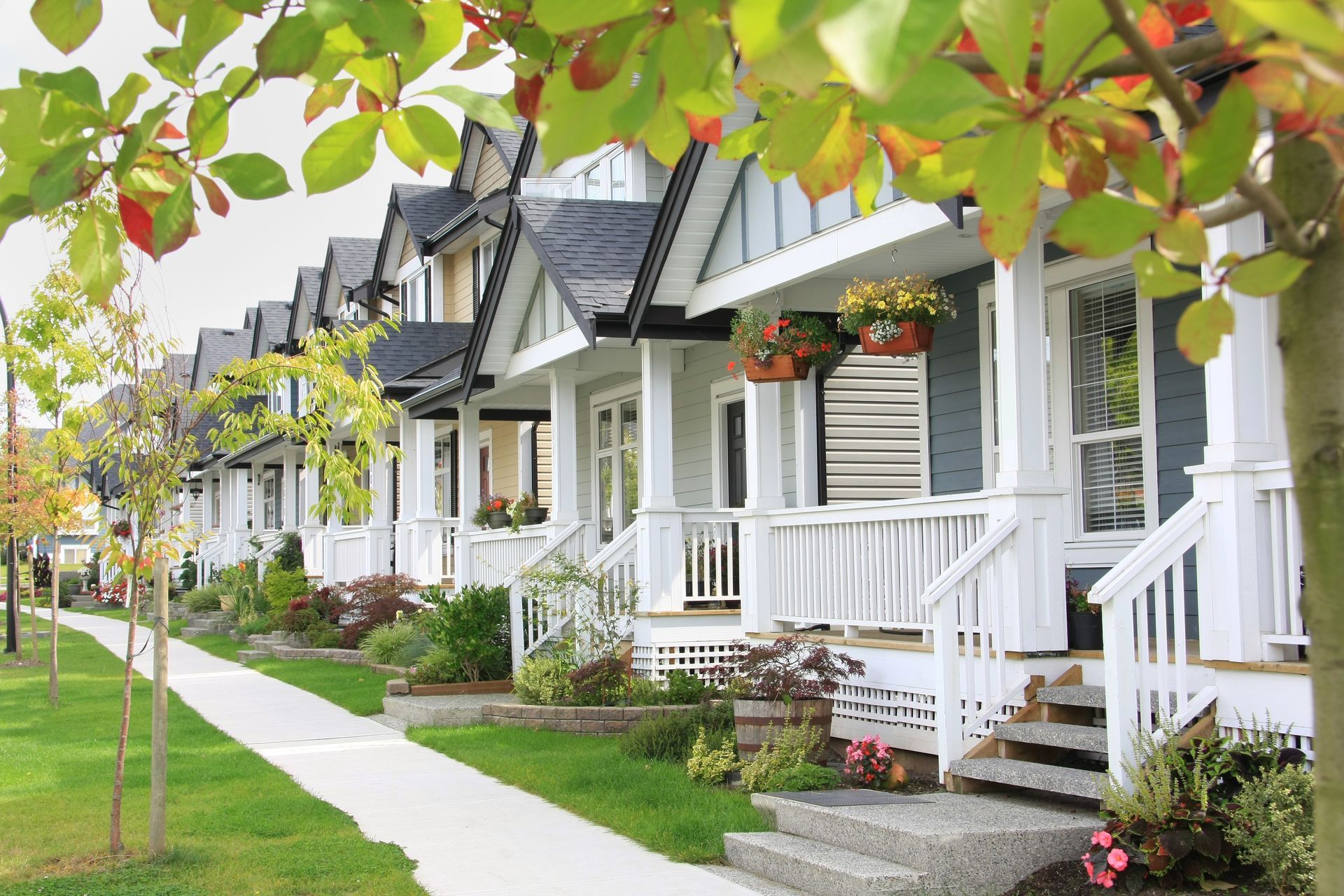3 Alternatives to Buying a Single-Family Home
In today's market conditions, it's challenging to find the classic American dream home: a single-family with a yard and a picket fence. Not only do buyers face historically low inventory, but housing prices are stretching the bounds of affordability, especially for first-time homebuyers. Should you set aside your dreams of homeownership if a single-family home is hard to find? Not necessarily. You can own a home, but differently. Check out these alternatives to single-family home living.
Condominiums
Rethink the image of a condominium as something you retire to in Florida. Condos are a real viable housing option for people of all ages. Once you start exploring them, you'll see they come in a wide range of styles, configurations, layouts, and pricing structures.
Some condominiums come with additional amenities not found in a single-family home. A condo building or complex can include fitness centers, dog parks, swimming pools, covered parking, and walking trails. The best part is you're not responsible for maintaining these amenities or the landscaping like you would be if you owned a home.
Since you'll be living around other people, condos provide a sense of community that isn't always present in single-family housing developments. Some complexes have enhanced security in the form of gated access and cameras around the building.
Condos are often found near dense downtown locations and major transit centers. If you're looking to cut down on the commute or have a balanced work-live-play lifestyle, a condo's location makes it so much easier. Cut down to a one-car or even a no-car family because everything you need is within walking distance.
In terms of pricing, condominiums typically cost less than single-family homes, making it a more reasonable entry point for first-time homebuyers or buyers seeking a second property. You'll often find cheaper insurance and property taxes to go along with the price tag.
Condominiums do have their disadvantages. Most people think about the HOA fees first. The fees vary across complexes, are required, and can increase over time. Condo owners can also experience special assessments for capital repairs to common areas like the roof or elevators if the cost of repairs exceeds what is in the HOA budget or account.
Before buying into a condo, look at the HOA fees, the strength of the association's budget, and how well the association is managed. Some HOAs are well-managed with strong reserves for emergencies, but not all are.
You'll also run into various regulations about what you can and can't do. These run the gamut from pet restrictions to what you can put on the front door or balcony.
Condo layouts vary, so you may not have any outdoor space or significant storage space. Parking is often limited and regulated with assigned spots.
Since condo units share common spaces, walls, and sometimes above and below, be prepared for reduced privacy. Even with the best soundproofing, you are likely to hear some noise from your neighbors–and they, you.
While condo units initially cost less to purchase, they also appreciate at a slower rate than a single-family home. They often take longer to sell, but that depends on the local market, the complex, and the unit's condition. Financing for condos can also be different than single-family home housing. You'll want to find a lender who offers mortgages on condos and consult with them about their programs.
Still, buying into a well-managed community can give you the housing you desire in a popular location. It could be a good option if you plan to stay at least five years in a particular area.
Townhomes
The townhome alternative is also more affordable and often near dense, urban areas packed with amenities. You'll have some outdoor space with a townhome, although usually, this is small and limited. Stylistically, they typically are multi-level and have a more narrow layout so more units can fit into a limited space.
Some townhomes are part of a community that includes amenities like a pool, clubhouse, and fitness center.
Compared to a single-family home, their price point is usually less for the same square footage. Townhomes offer lower property taxes and reduced maintenance costs. You're less likely to be fully responsible for any external home improvement, even if you may need to chip in for shared repairs to the siding or a roof. When it comes time to sell your townhome, be prepared for appreciation values to be less than a single-family home. On the upside, townhomes are also usually easy to rent.
Many lenders treat townhome financing like condo financing, so be prepared to discuss the differences in the mortgage program. If you purchase in a townhome community, you'll still pay HOA fees and need to follow HOA rules. Every association is different, so read through the restrictions and understand them before buying in.
Similar to a condo, townhomes still have shared walls, usually with neighbors on each side. Depending on the layout, you may have fewer shared walls than a condo. Parking can also be limited; in crowded downtown cores, expect shared street parking.
Duplexes
If dealing with HOA associations and community members does not appeal to you, consider a duplex. They are the closest thing to a single-family home without actually being a house.
Duplexes typically are in more suburban areas, which gives them more of a neighborhood feel. Duplexes often have just one shared wall, which offers more privacy than the other options. You're also more likely to have on-site or in-unit laundry, more space, and more control over your living area. As the owner, you set the rules!
As for your additional unit, you could use the second home for family members. Duplex living arrangements help families keep an eye on aging members while still affording some privacy. Or, you could rent the other unit to reduce your monthly mortgage payment. Depending on what kind of mortgage deal you strike and area rental prices, you could generate some income from your rental.
The downside to renting is you've just become a landlord. That means you handle the repairs, capital expenses, and the higher property taxes. Not only do you need to be ready for landlord responsibilities, but you will be living with your tenant. You can't hide from problem tenants.
Duplexes do have a higher purchase price, which some buyers justify with the intention of renting the second unit. Understand that rental income is not guaranteed. You'll need to be sure you can float the second unit while it's unoccupied.
The good news is some residential loan programs enable you to finance a duplex purchase without the need for a commercial loan. The problem may be finding a duplex to buy, as they are often in limited locations. You can also assess triplex and quad-plex buildings, which are similar to the duplex but with more units.
Buying Your Next Home
All three of these single-family home alternatives give home buyers a way to break into homeownership in a challenging market. Include conversations with a lender as you explore these home options. We'll help you know what to expect and create a budget ideal for your housing goals.





